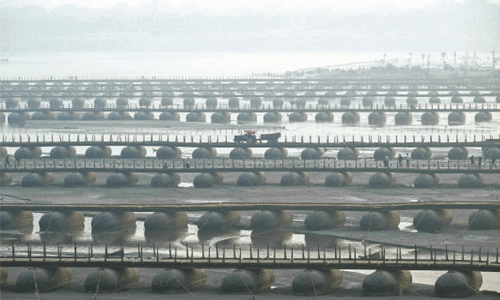ISLAMABAD: As the repatriation of undocumented Afghan nationals continues, United Nations agencies have urged the Pakistan government to implement a screening mechanism to identify individuals in need of international protection, according to the latest humanitarian update released by the UN Office for the Coordination of Humanitarian Affairs (UN-OCHA).
In response to the emerging crisis, six UN agencies and humanitarian partners have joined forces to provide a unified cross-border response. The inter-agency ‘Border Consortium Appeal’ aims to garner funding of $185.3 million to continue offering life-saving assistance to returnee populations.
UNHCR Representative in Pakistan, Philippa Candler has emphasised the situation’s urgency, stating, “mass arrivals back to Afghanistan are adding to the ongoing humanitarian crisis as winter temperatures start to dip.”
With temperatures already reaching minus 4 centigrade in some locations, vulnerable groups, including women and children, face life-threatening conditions without adequate shelter, she said.
The UNHCR official reiterated the call for ‘voluntary, safe and dignified returns to Afghanistan, regardless of legal status in Pakistan.’ As the humanitarian community rallies to address this evolving crisis, urgent action, support, and international cooperation are imperative to mitigate the impact, especially on vulnerable populations.
Challenges
This effort comes amidst the existing challenges faced by over two-thirds of the Afghan people, underscoring the immense strain on resources and capacities, UN-OCHA humanitarian update says.
Humanitarian actors are also intensifying their presence and protection efforts at key crossing points, particularly Torkham and Spin Boldak, with regular border monitoring visits and protection screenings conducted to identify and assist individuals with heightened vulnerabilities and needs.
Humanitarian actors expect approximately 720,000 undocumented individuals and 50,000 assisted voluntary repatriations (Proof of Registration cardholders) to require support at border points from October through July 2024. Returnee families, often exhausted and in poor medical condition, require urgent emergency attention and assistance upon arrival, including food, health, cash, non-food items and psychosocial support, the update report says.
The vast majority of crossings take place through Spin Boldak border in Kandahar province and Torkham border in Nangarhar province.
Published in Dawn, January 5th, 2024















































Dear visitor, the comments section is undergoing an overhaul and will return soon.